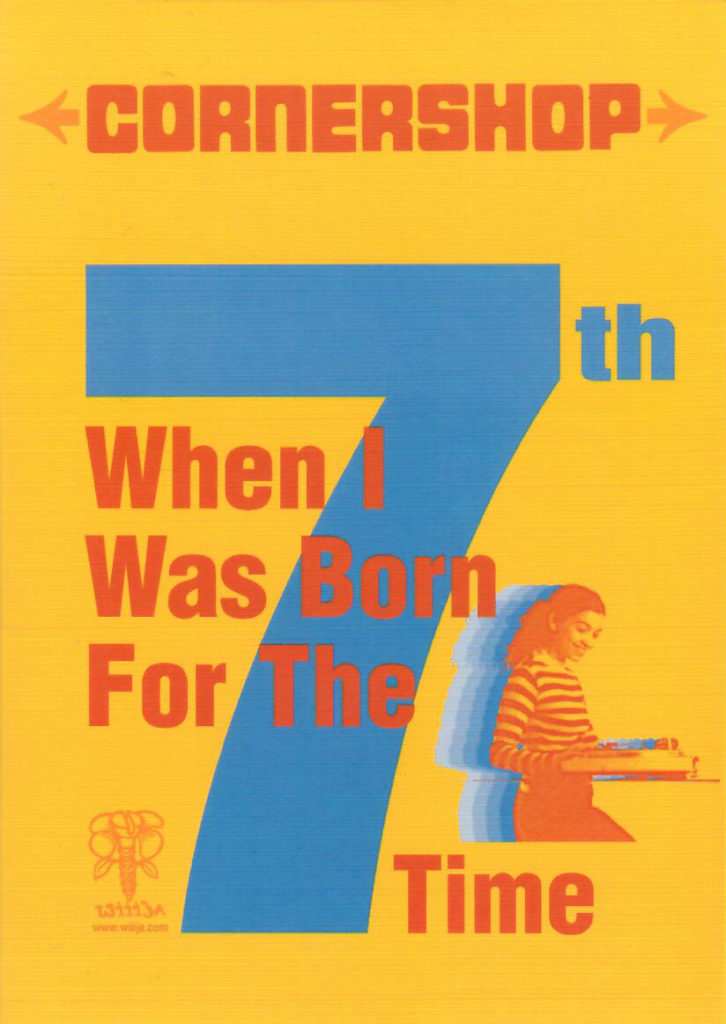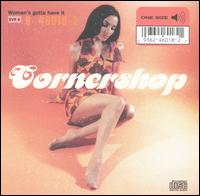Cornershop – When I Was Born for the 7th Time (1997) – a personal review by Greg Neate.
In the early 1990’s, Cornershop were an incendiary, rough-edged indie band from Leicester, an historic city in the English Midlands with a significant medieval past and a more modern history of migrant families from the British Commonwealth. This was where I first met and photographed them during their early abrasive gigs and as they progressed from releasing statements of intent singles to stretching their ideas out into full albums.
To say the reactions they evoked were mixed, would be an understatement as although I quickly enthused about them, much a disparaging word – sometimes rightly – was also said. However their third album, 1997’s When I Was Born for the 7th Time was neither a riposte to their detractors nor a rebirth, but an unexpected transformation into a multifaceted and globally aware phenomenon. Even among their supporters, I wasn’t alone in failing to imagine that they could have created an album that continues to startle in its originality, ambition, breadth and delivery.
Some context for this sudden leap forward comes from how the album was midwifed by their original independent UK record label, Wiiija, with international backing from David Byrne’s Luaka Bop label and part co-produced by rising hip-hop producer, Dan the Automator. However, that doesn’t take anything away from the album’s cohesion and diversity that continues to sound timeless, contemporary and even anticipatory; while the amusing song-sketch, Funky Days Are Back Again took inspiration from the Tories downfall, its vision of dungarees and worker’s strikes backed by a primitive casiotone soundtrack might now be more suited to post-Brexit Britain.
Like the band themselves, When I Was Born… has been somewhat overshadowed by the success of its second single, Brimful of Asha; Cornershop’s tribute to vinyl culture that references their genre mixing and globetrotting musical influences. In a post-modern twist, the song became a catalyst to itself, courtesy of a Big Beat remix by Norman Cook and an astonishing international hit. On the album though it’s preceded by the strangely hypnotic, sloping album opener, Sleep on the Left Side, which acts as a perfect foil before giving way to the deceptively simple, Richman-esque riff that announces Brimful’s joyous arrival.
From there the vinyls double-album fifteen tracks dovetail naturally into each other, including a number of instrumentals featuring looped samples and sitar breaks. There’s even room for some rather special guests but before that, Cornershop have some star turns of their own, particularly We’re In Your Corner, which features the Punjabi vocals of the band’s main figure Tjinder Singh backed by Anthony Saffery’s sitar and Ben Ayres’ tamboura before Nick Simms and Peter Bengry’s percussive accompaniment bursts into full flight. Later on the album’s closer, Singh will return to his mother tongue during an otherwise faithful cover of The Beatles‘ Norwegian Wood.
In between more multilingual voices appear as Lourdes Belart counts in Spanish from uno to quatro on Good Shit, followed by a duet with American country singer, Paula Frazer, on Good To Be On The Road Back Home. While the former extolls the joy of the journey as Singh describes “feeling good behind the wheel”, the latter lists an increasingly number of dislocated places: from Tokyo to London, Chattanooga to New York City. According to the album’s credits, such references nearly match the number of locations where When I Was Born… was written and/or recorded in, including Singh’s bedroom on London‘s Holloway Road. And if that wasn’t enough global locations for you, when Good Shit was released as the album’s first single (with its title appropriated for public consumption as Good Ships), its cover featured an African-American astronaut with an afro enjoying a space walk above Earth.
Two American poets of rather different kinds complete the album. On Candyman, Justin Warfield provides a hip-hop delivery over a looped Larry Coryell guitar riff alongside Singh’s declaration as the song’s protagonist, to create a track so fresh that a decade later it was dropped untouched into global marketing campaign to sell footwear. Meanwhile in one of Allen Ginsberg’s final recordings, the original beat-poet provides a reading on When the Light Appears Boy as a carnival band parades past several floors down on the street below.
Over twenty years on and in a world that’s become increasingly compressed, the album continues to anticipate the experience of global citizens who have lived in multiple places but may be dislocated from feeling at home. It might even be that wherever you are, the sound you now hear outside your window is like When I Was Born for the 7th Time.



